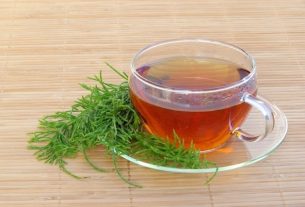Garcinia cambogia is a medicinal plant, of the species Garcinia gummi guttaalso known as citrine, malabar tamarind, goraka and oil tree, which produces fruits similar to a small pumpkin, rich in alkaloids, phenolic compounds and organic acids, being used to aid weight loss, regulate cholesterol levels or improve energy and disposition, for example.
The normally used part of this medicinal plant is the fruit, especially its peel, from which the active substances are extracted, used as a natural remedy for constipation, hemorrhoids or intestinal worms. In addition, garcinia cambogia bark is also used in cooking as a food preservative or flavoring.
Garcinia cambogia can be found in health food stores or in capsule supplement form and, although it has many health benefits, its use should be done with the guidance of a doctor or other health professional who has experience with the use of medicinal plants.

What is it for
Garcinia cambogia has anti-inflammatory, antioxidant, antiulcer, antimicrobial, anthelmintic, antidiabetic and diuretic properties, due to the substances present in its composition, mainly hydroxycitric acid.
The main indications of this plant include:
- Stomach ulcer;
- Hemorrhoid;
- Constipation;
- Rheumatism;
- Swelling;
- Irregular menstruation;
- Intestinal worms;
- High cholesterol and triglycerides;
- Diabetes;
Furthermore, garcinia cambogia helps to improve energy levels and stamina and strengthen the immune system.
Does garcinia cambogia help you lose weight?
The hydroxycitric acid present in the bark of garcinia cambogia and in supplements from this medicinal plant can help in the weight loss process, as it is capable of blocking an enzyme responsible for the process of transforming sugars and other types of carbohydrates from food into fat in the body. In this way, garcinia cambogia can prevent excess sugar from entering the cells, but rather being eliminated in the urine and feces.
Furthermore, garcinia cambogia is considered a natural appetite suppressant because it stimulates the production of serotonin, a neurotransmitter responsible for communication between neurons and regulation of mood, sleep and appetite, increasing the sensation of pleasure and well-being. .
How to drink
Garcinia cambogia can be consumed in the form of tea or capsule supplements, with the dried fruit or dry extract of the fruit peel.
The main ways to take garcinia are:
- 500 mg capsules: the recommended dose for adults is 1 to 2 500 mg capsules per day, approximately 1 hour before meals. This dose may vary according to age and objective, and the doctor may recommend consuming fewer capsules per day, for example;
- Garcinia cambogia tea: add 3 to 5 dried garcinia cambogia fruits in 1 liter of water and boil. Then turn off the heat, cover and let it rest for about 5 minutes. Drink 1 cup of tea up to 3 times a day, between main meals.
It is important that the use of this medicinal plant, especially when the objective is weight loss, is done in association with a balanced diet and physical activity so that the results are more lasting.
Possible side effects
Some of the side effects that may occur during the use of garcinia cambogia, especially when consumed for more than 12 weeks or in quantities greater than those recommended, are nausea, vomiting, diarrhea, stomach pain, sore throat, dry mouth or dizziness. .
Garcinia cambogia can cause serious liver problems such as acute hepatitis or liver failure, which can be noticed through symptoms such as abdominal pain, nausea, dark urine, light or whitish stools, or yellowing of the skin and eyes. It is advisable to stop using garcinia and seek medical help or the nearest emergency room if the person presents these symptoms. Know how to identify the symptoms of liver problems.
Who shouldn’t use
Garcinia cambogia should not be used by children under 12 years of age, pregnant or breastfeeding women, people who use antidepressants that increase serotonin, such as fluoxetine or escitalopram, for example, or by people who are allergic to garcinia. or any other component of the supplement.
Furthermore, garcinia cambogia should be used with caution by diabetic people as it can greatly reduce blood sugar levels, causing a hypoglycemia crisis.
Bibliography
- HABER, SL; et al. Garcinia cambogia for weight loss. Am J Health Syst Pharm. 75. 2; 17-22, 2018
- HEYMSFIELD, S. B.; et al. Garcinia cambogia (hydroxycitric acid) as a potential antiobesity agent: a randomized controlled trial. JAMA. 280. 18; 1596-600, 1998
- LUNSFORD, KE; et al. Dangerous dietary supplements: Garcinia cambogia-associated hepatic failure requiring transplantation. World J Gastroenterol. 22. 45; 10071-10076, 2016
- OHIA, SE; et al. Safety and mechanism of appetite suppression by a novel hydroxycitric acid extract (HCA-SX). Mol Cell Biochem. 238. 1-2; 89-103, 2002
- HAYAMIZU, K.; et al. Effects of garcinia cambogia (Hydroxycitric Acid) on visceral fat accumulation: a double-blind, randomized, placebo-controlled trial. Curr Ther Res Clin Exp. 64. 8; 551-67, 2003
- SEMWAL, R.B.; et al. A comprehensive scientific overview of Garcinia cambogia. Phytotherapy. 2015 Apr;102:. 102. 134-48, 2015
- LIVERTOX: CLINICAL AND RESEARCH INFORMATION ON DRUG-INDUCED LIVER INJURY. Garcinia Cambogia. 2019. Available at: <https://www.ncbi.nlm.nih.gov/books/NBK548087/>. Accessed on Aug 17, 2021
- ONAKPOYA, I.; et al. The Use of Garcinia Extract (Hydroxycitric Acid) as a Weight loss Supplement: A Systematic Review and Meta-Analysis of Randomised Clinical Trials. J Obes. 2011. 509038, 2011

Sign up for our newsletter and stay up to date with exclusive news
that can transform your routine!
Warning: Undefined array key "title" in /home/storelat/public_html/wp-content/plugins/link-whisper-premium/templates/frontend/related-posts.php on line 12
Warning: Undefined array key "title_tag" in /home/storelat/public_html/wp-content/plugins/link-whisper-premium/templates/frontend/related-posts.php on line 13



